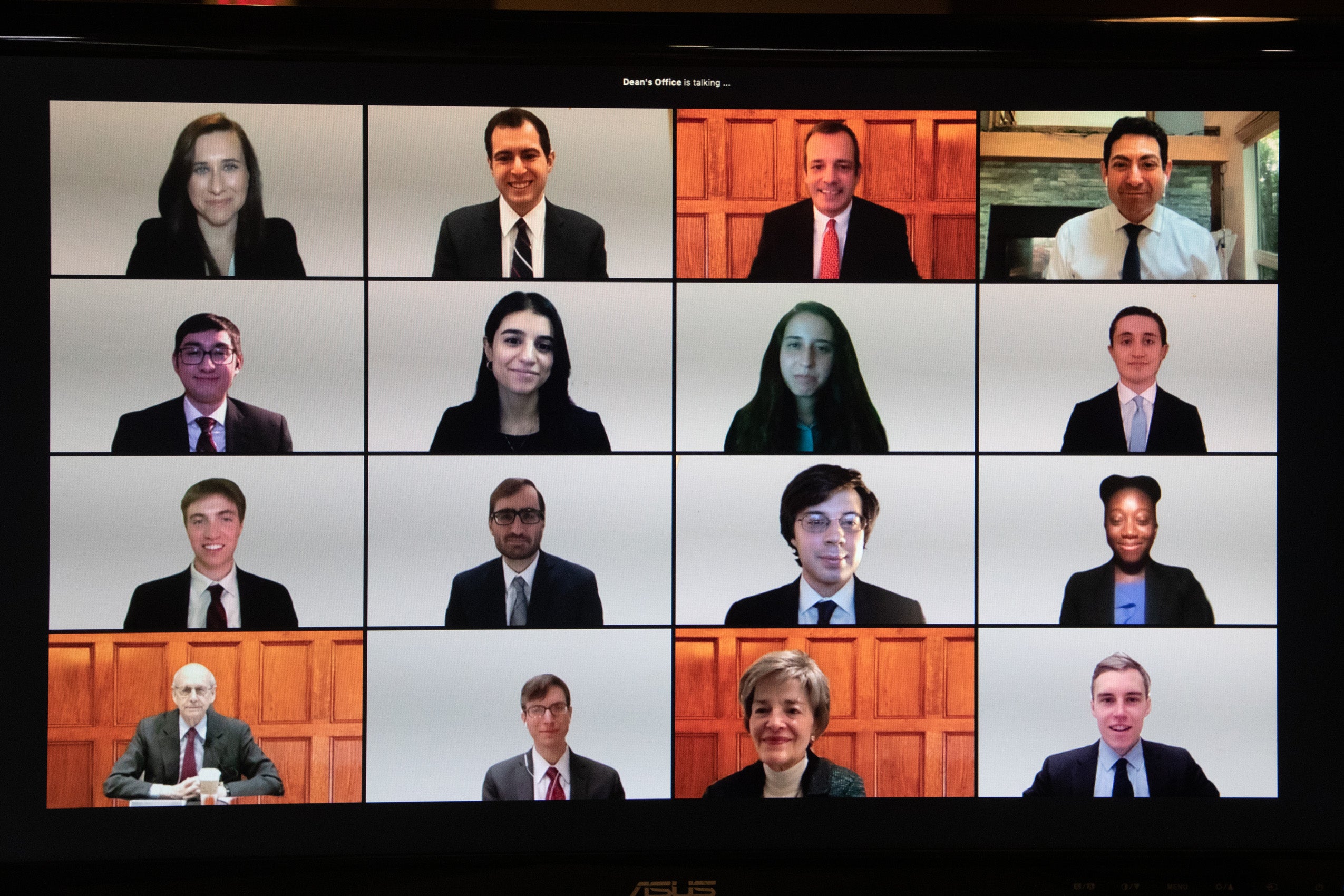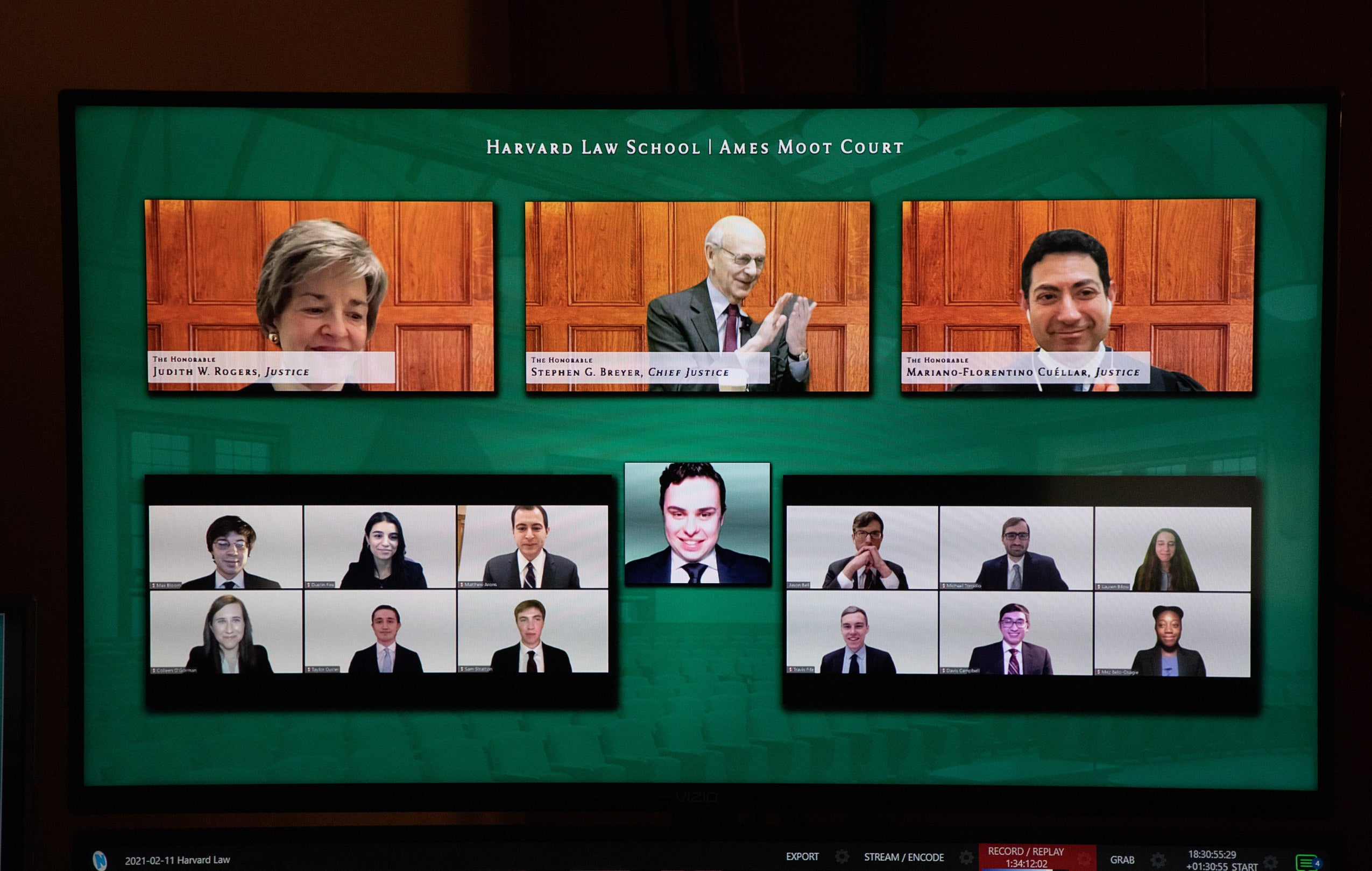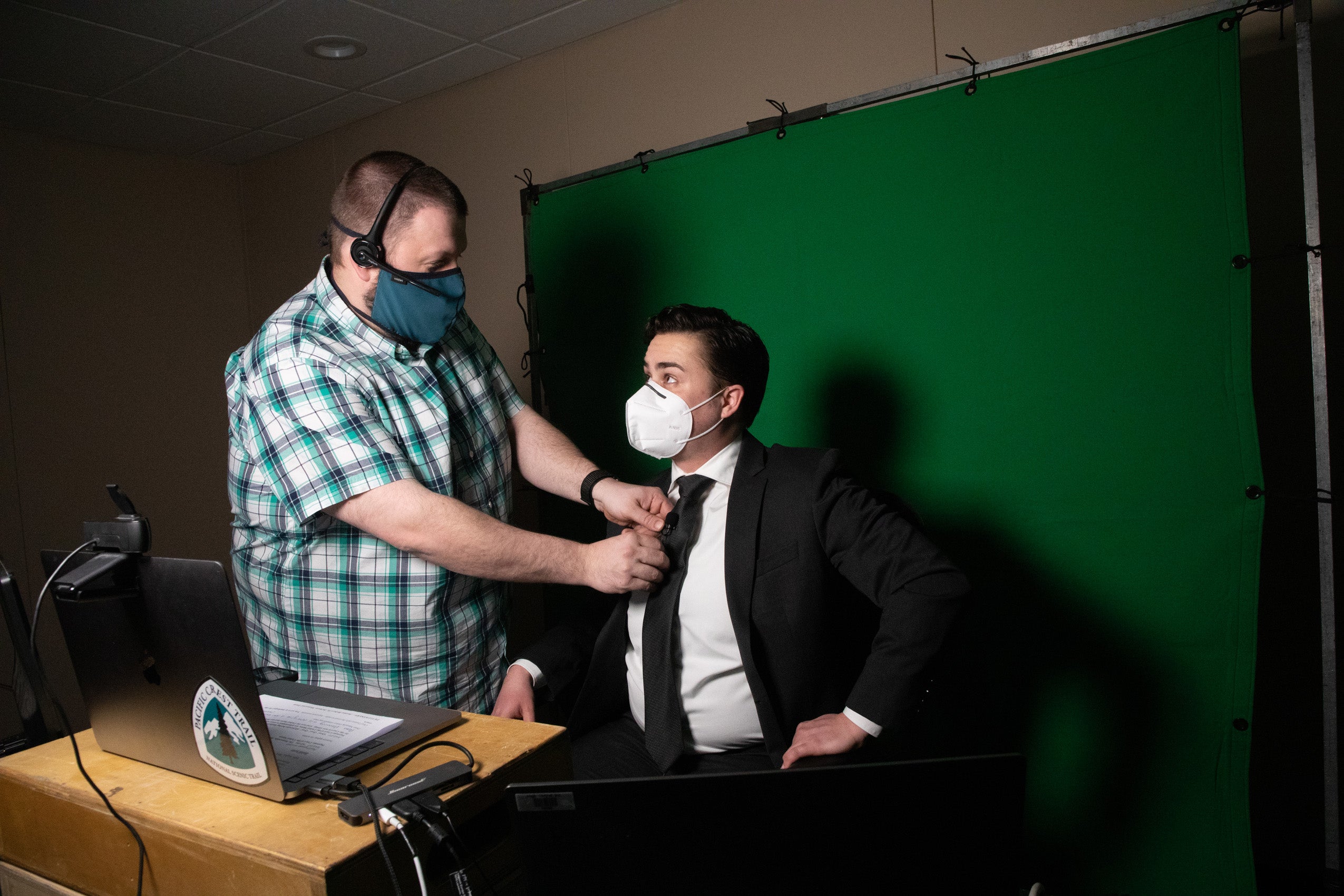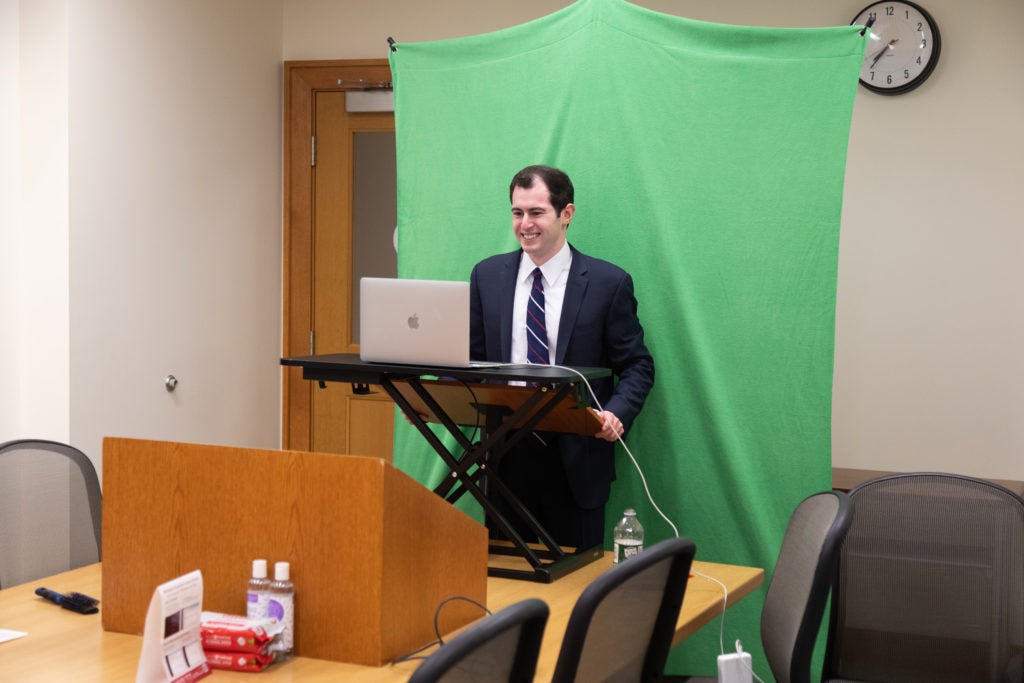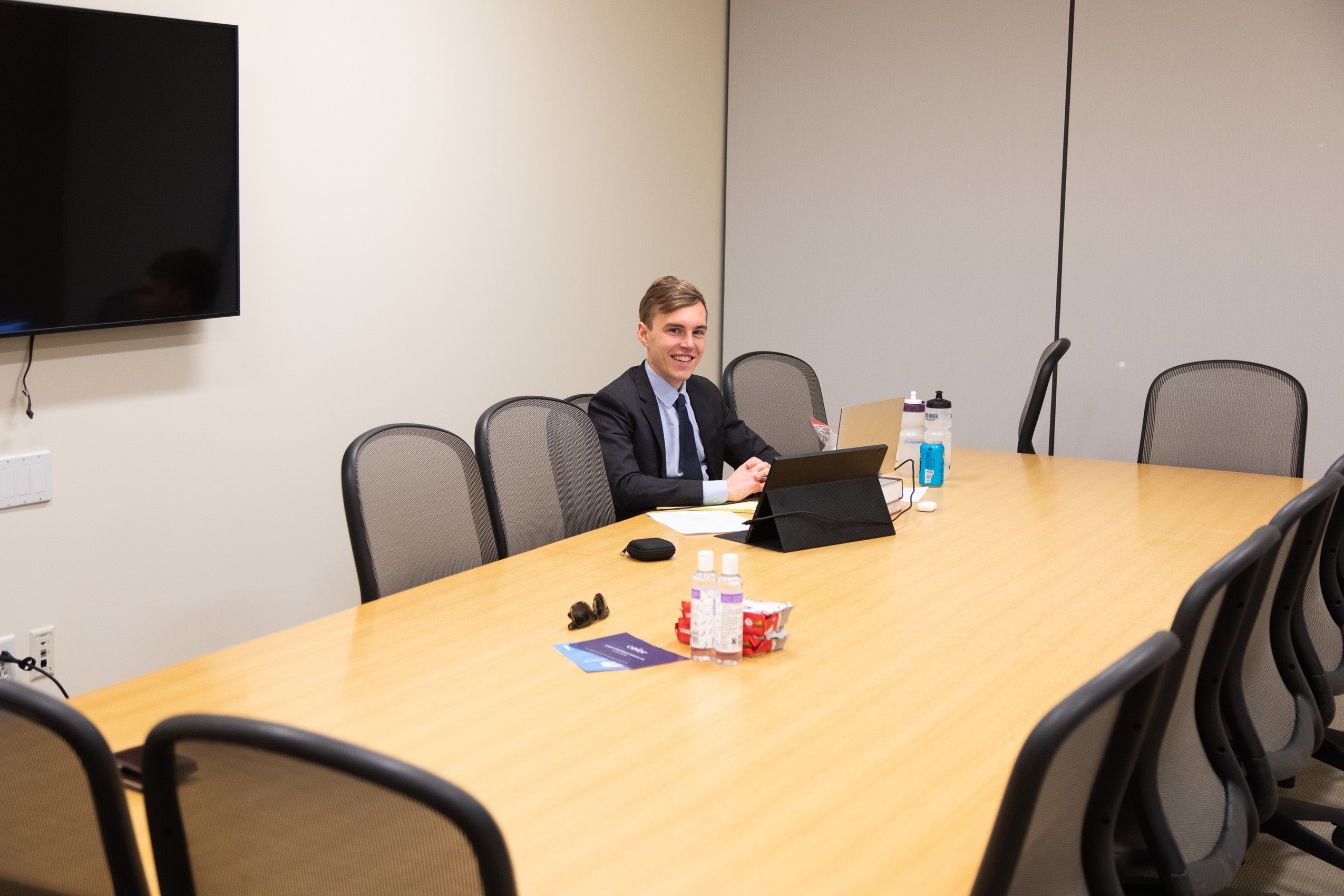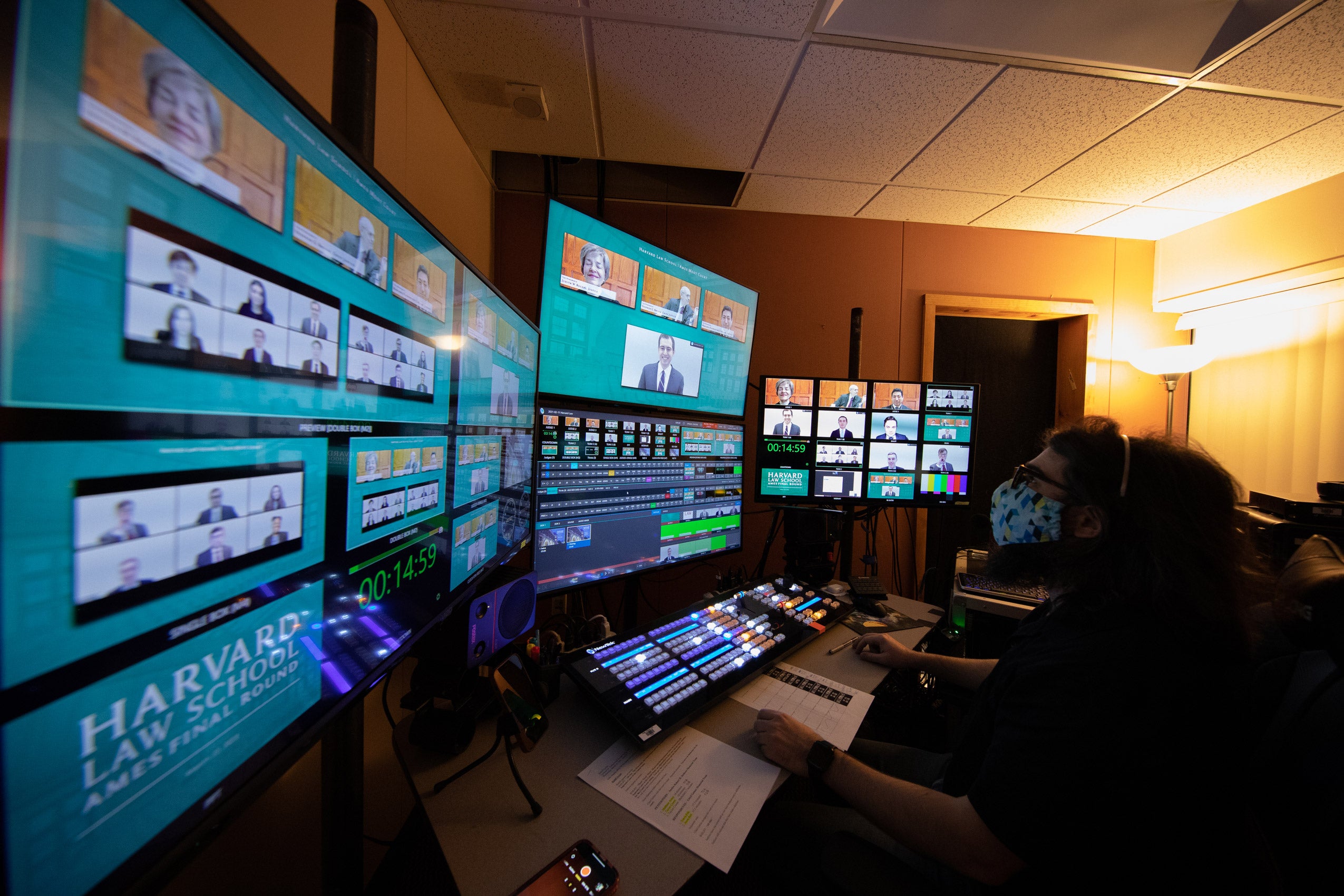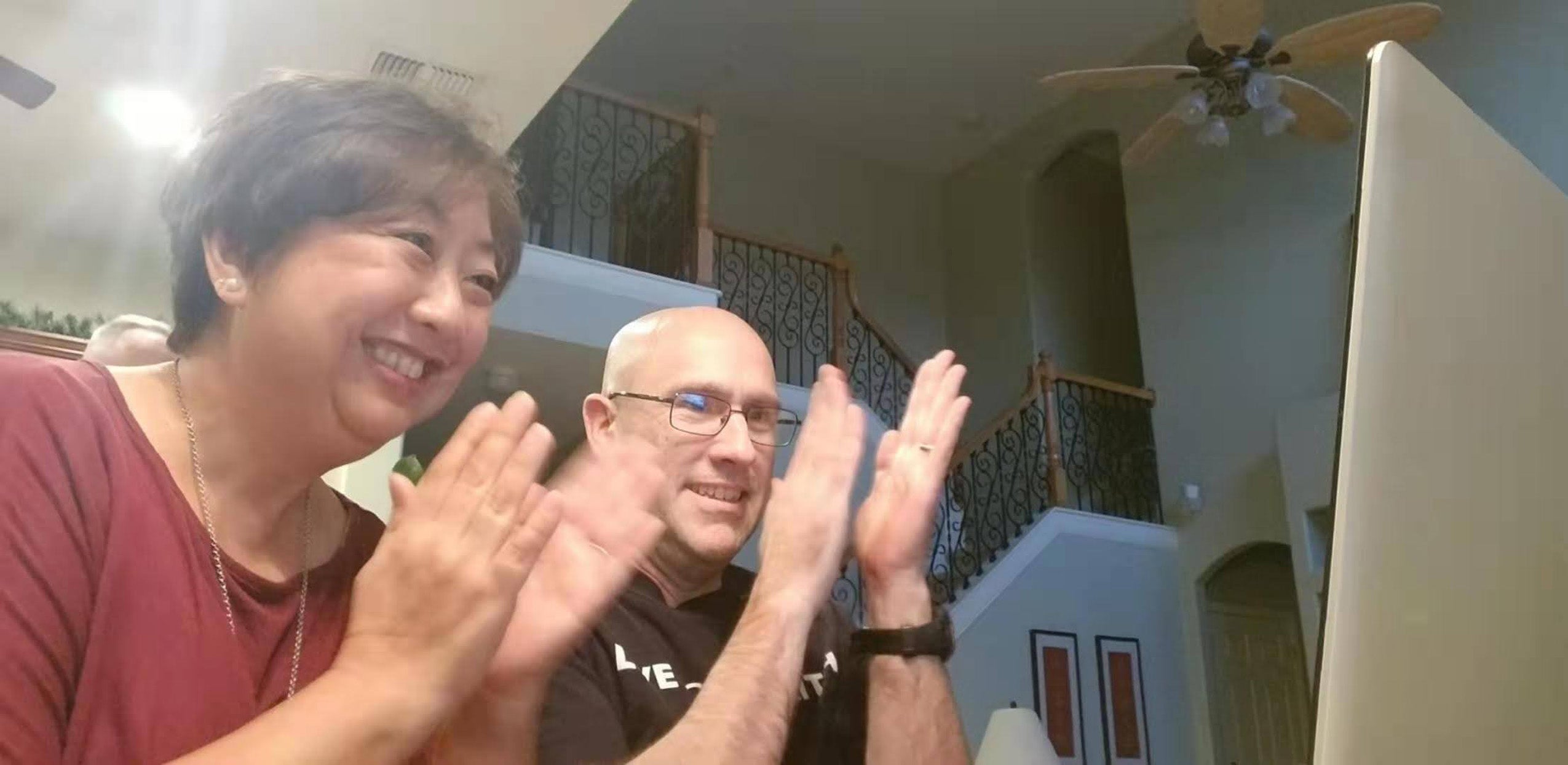On March 10, two teams of six Harvard Law School students met to participate in the final round of the Ames Moot Court Competition, hoping to secure the top prize in one of the most prestigious contests for appellate brief writing and advocacy in the nation. After enduring several months of preparation and drafting, it all came down to 70 minutes of arguments — including a dizzying volley of questions and responses — before some of the country’s foremost legal arbiters.
In the end, the panel of judges named the respondents, the Lloyd Gaines Memorial Team, best overall team. The judges also crowned Travis Fife ’21, of the Lloyd Gaines Memorial Team, as the competition’s best oralist. And in a sign of the talent on both sides, the petitioners, the Justice Robert H. Jackson Memorial Team, were awarded best brief.
Established in 1911, the Ames Moot Court Competition begins during students’ second year at HLS and typically culminates in a final round in the fall of their third year. The pandemic pushed the endgame to March 10, but it did not deter the two teams, who spent weeks working on briefs supporting their arguments before facing off in front of Associate Justice Stephen G. Breyer ’64, Supreme Court of the United States; Judge Judith W. Rogers ’64, United States Court of Appeals for the District of Columbia Circuit; and Justice Mariano-Florentino Cuéllar, Supreme Court of California. Because the event was held online this year, more than 400 spectators were able to tune in from across the United States to watch the showdown.
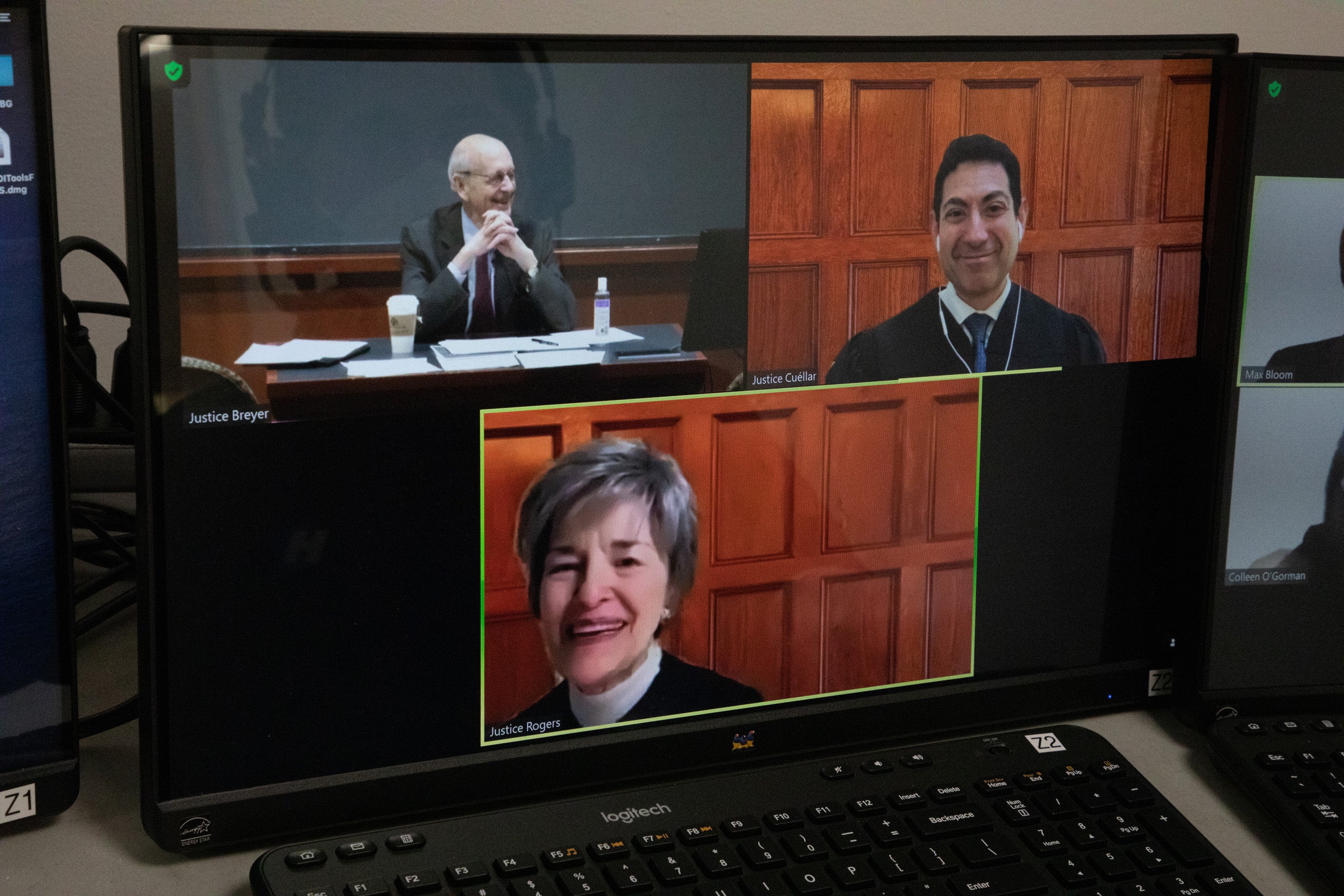
“It’s really surreal,” says Fife, best oralist winner. “For me, yesterday was about doing my team proud. What no one saw on the screen was all the hours the six of us spent on Zoom the last few weeks practicing for oral argument. I never thought I’d be named best oralist, and it really means a lot because it reflects the way we came together as a team to present the best version of our arguments.”
The evening began with a welcome from Dean John F. Manning ’85 and John August ’21 from the Board of Student Advisers, which helps administer the competition.
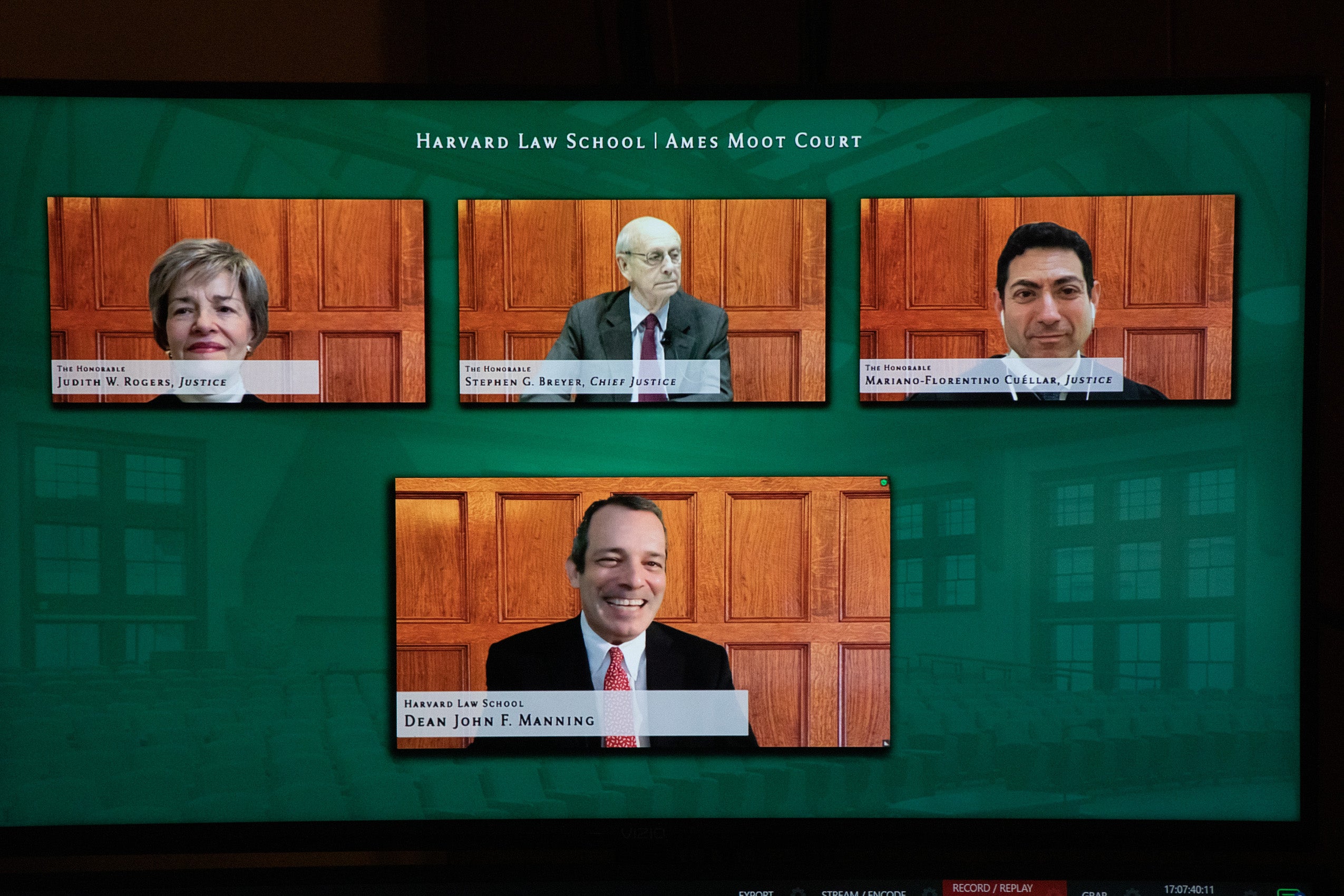
“Making this final round is a very big deal, and a very big accomplishment, and one of the highlights of our academic year,” said Manning.
Written by a previous Ames best oralist, Tejinder Singh ’08, the hypothetical case, Tanner v. State of Ames, centered on a violation of the Ames Nonconsensual Pornography Act (NPCA). The state’s statute was passed in part to combat what is sometimes referred to as “revenge porn,” when a person distributes sexually explicit photos or videos of a current or former partner without their consent. At issue was whether the petitioner, who was prosecuted under the law, could be forced by warrant to turn over her cellphone password under the Fifth Amendment, and whether the statute itself was a violation of her First Amendment right to free speech.
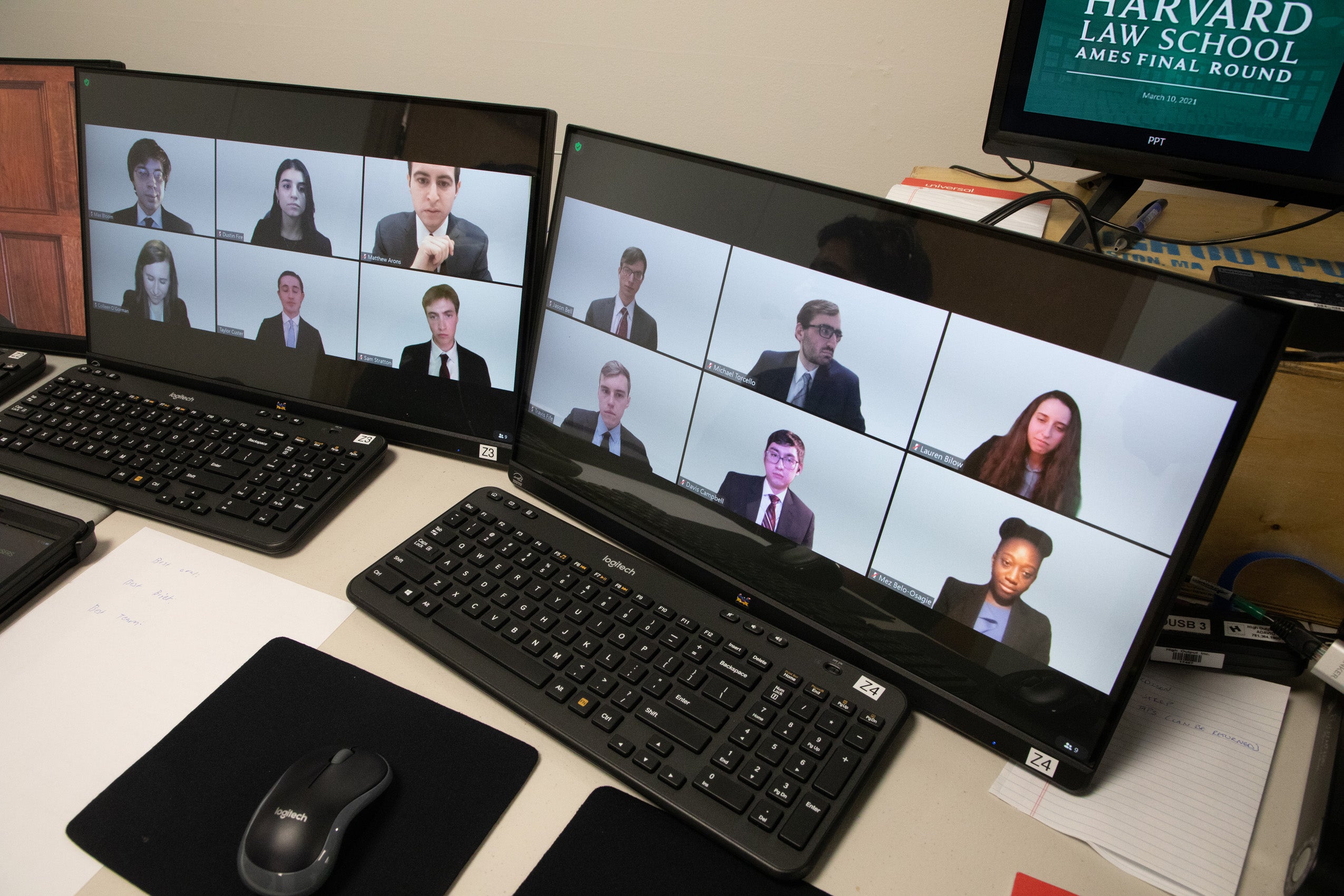
Appearing for the petitioner, the Justice Robert H. Jackson Memorial Team included Max Bloom ’21, Dustin Fire ’21, Colleen O’Gorman ’21, and Sam Stratton ’21, with Matthew Arons ’21 and Taylor Custer ’21 as oralists. The team argued that the NPCA violated their client’s First Amendment rights by criminalizing protected speech, and that the statute was overbroad because it did not build in important exceptions in the public interest. They also asserted that the court could not force their client to disclose her cellphone password because it would be compelled testimony, therefore violating her privilege against self-incrimination under the Fifth Amendment.
Jason Bell ’21 and Travis Fife ’21, oralists for the respondents, were joined by teammates Ameze Belo-Osagie ’21, Lauren Bilow ’21, Davis Campbell ’21, and Michael Torcello ’21 to form the Lloyd Gaines Memorial Team. Their argument on behalf of the state of Ames was that the petitioner’s actions were not protected speech under the First Amendment, but that even if they were, the Ames statute would survive even the highest level of review by the court. On the second issue, respondents contended that the password was not in and of itself incriminating or testimonial, and therefore not sheltered by the Fifth Amendment.
Both petitioners and respondents received their fair share of difficult questions from the judges, especially Justice Breyer, who offered sometimes-humorous hypotheticals to challenge each side. Judge Rogers and Justice Cuéllar pressed the oralists to consider and defend the wider ramifications of their arguments on future cases.
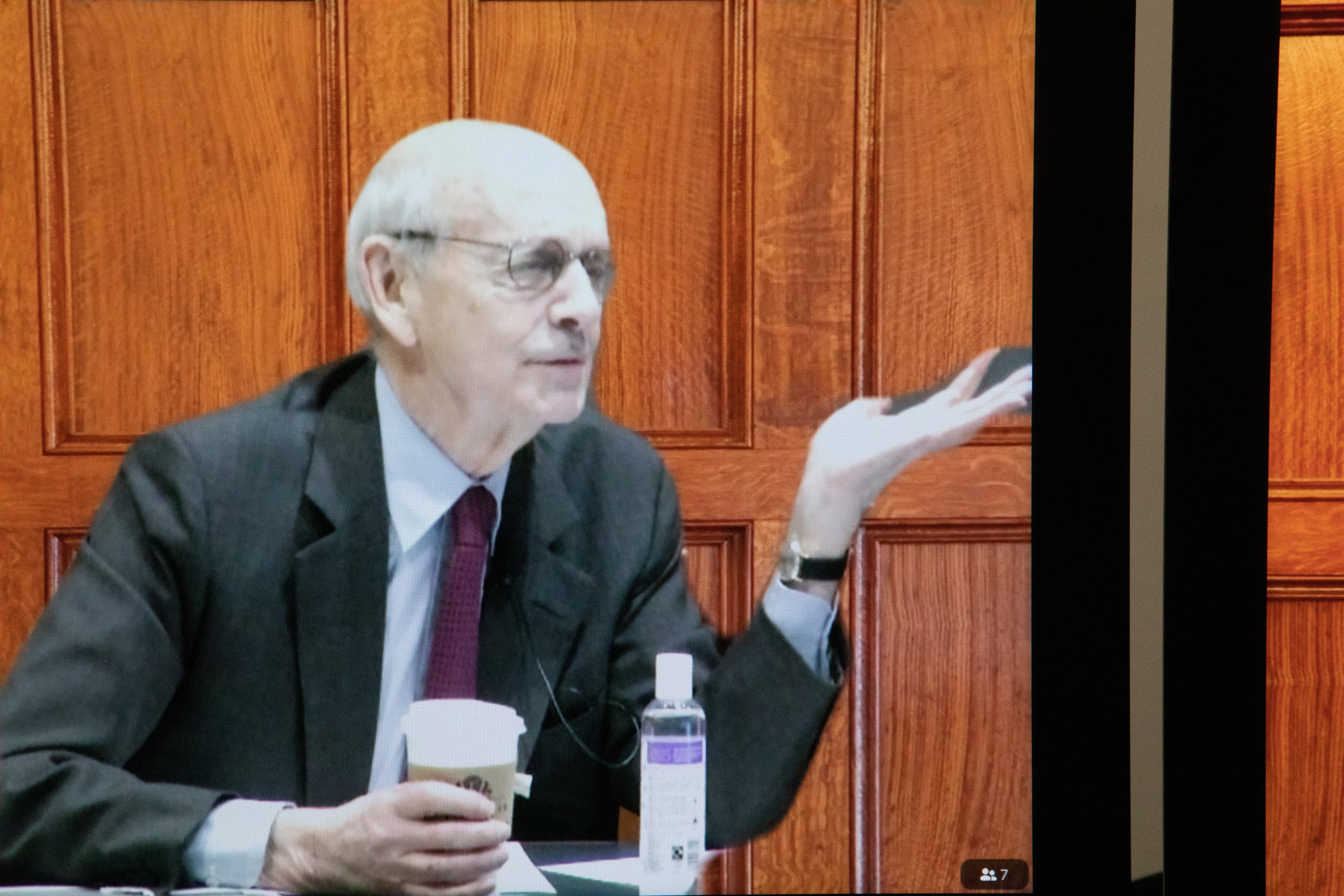
After the petitioners and respondents had made their points, the judges were sent to a breakout room to deliberate. Upon their return, Justice Breyer complimented both teams for their preparation and thoughtful arguments. Noting that he and his fellow judges had a difficult time deciding the results, he awarded best team overall to the Lloyd Gaines Memorial Team, with team member Travis Fife as best oralist, and best brief to the Justice Robert H. Jackson Memorial Team.
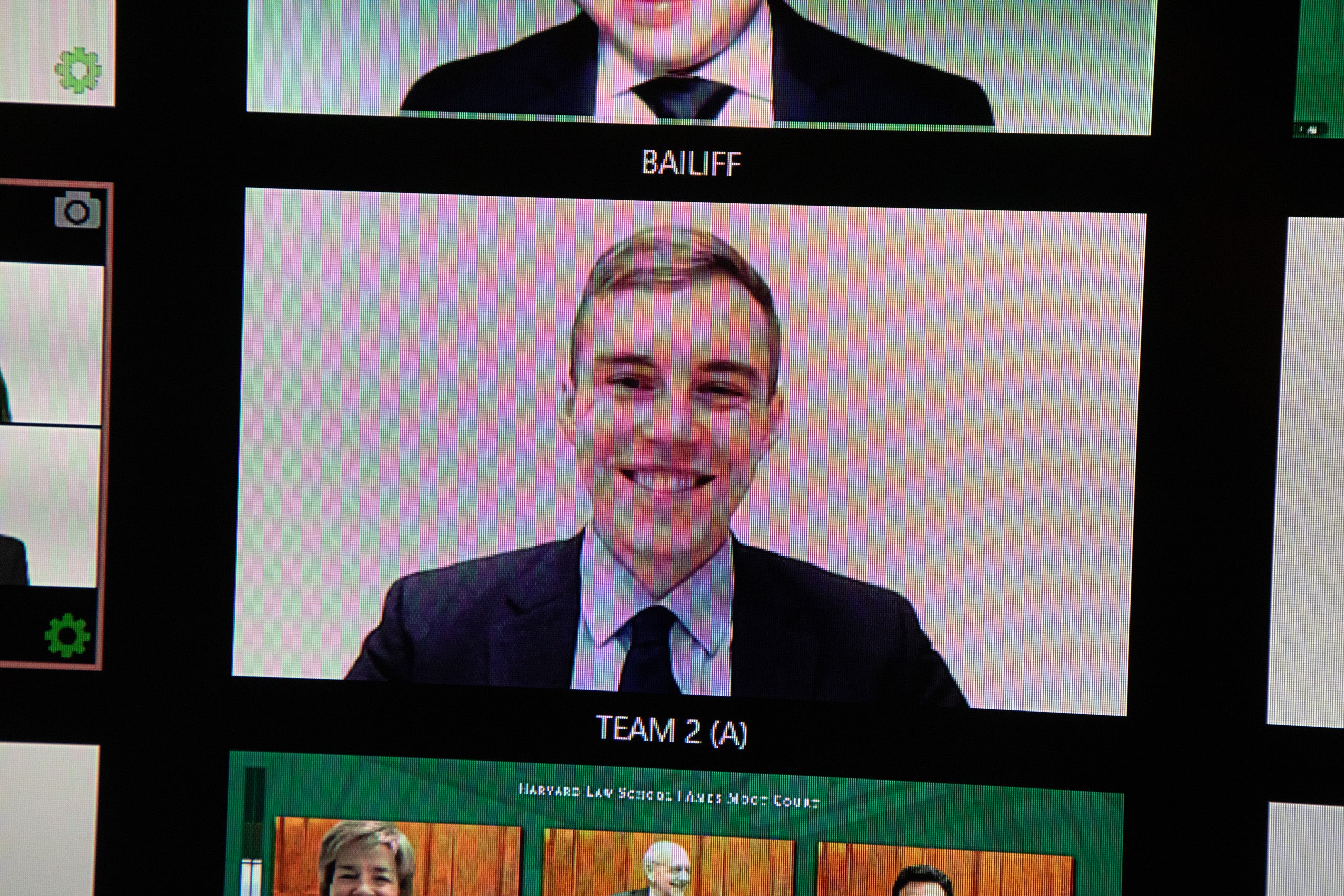
“My team gave me the model for how I want to work for the rest of my life,” says Lauren Bilow, of the Lloyd Gaines Memorial Team. “We all cared in equally large proportions about both the work and the team … The only part of the entire experience that I didn’t enjoy is that it’s now over.”
